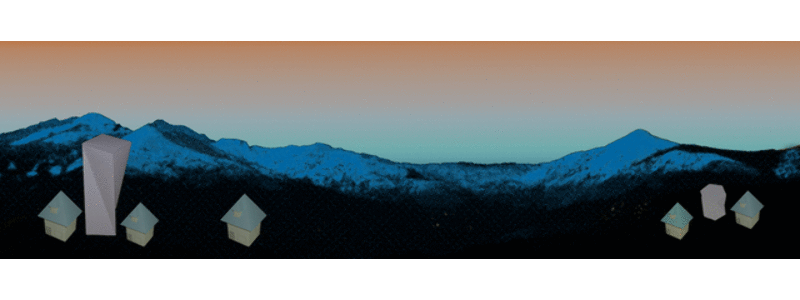Mission: To inspire and educate people to safeguard our natural resources while building an equitable and sustainable local food system.
Organization Type: Not-For-Profit Corporation
Website
Contact e-mail
Telephone
(206) 633-0451

Mission: To inspire and educate people to safeguard our natural resources while building an equitable and sustainable local food system.
Organization Type: Not-For-Profit Corporation
(206) 633-0451
According to the Surfrider Foundation webpage, their mission “is the protection and enjoyment of oceans, waves and beaches through a powerful activist network.”
Through educational, campaign and program initiatives, the many chapters of the Surfrider Foundation operate to protect our oceans waves and beaches.
For updates on the Olympic Peninsula Chapter (OPC) visit their blog.
Organization Type:
As stated by their official website:
Idaho OnePlan provides data and software to help growers develop a single conservation farm plan that can be pre-endorsed by the various agencies, streamlining and simplifying the regulatory process that farmers face.
Idaho OnePlan is a multi-agency project to combine government regulations and current best management practices for agriculture into a single plan, integrating federal, state, and local regulations for:
•Nutrient, Pest and Waste Management
•Water Quality and Wetlands
•Air Quality
•Financial Assistance
•Endangered Species
•Petroleum Storage Tanks
Organization Type: Non-Government Organization
(208) 332-1790
Description:
With the mission of “Helping People Help the Land,” the Natural Resources Conservation Service (NRCS) provides products and services that enable people to be good stewards of the Nation’s soil, water, and related natural resources on non-Federal lands. With our help, people are better able to conserve, maintain, or improve their natural resources. As a result of our technical and financial assistance, land managers and communities take a comprehensive approach to the use and protection of natural resources in rural, suburban, urban, and developing areas.
Since the 1930’s, NRCS has worked with conservation districts and others throughout the U.S. to help landowners, as well as Federal, State, Tribal, and local governments and community groups. NRCS has six mission goals: high quality, productive soils; clean and abundant water; healthy plant and animal communities; clean air; an adequate energy supply; and working farms and ranch lands. To achieve these goals, the Agency implements these strategies:
• Cooperative conservation: seeking and promoting cooperative efforts to achieve conservation goals.
• Watershed approach: providing information and assistance to encourage and enable locally-led, watershed-scale conservation.
• Market-based approach: facilitating the growth of market-based opportunities that encourage the private sector to invest in conservation on private lands.
In Washington:
Spokane, WA. (Feb. 14, 2013) — Private landowners and tribes working to increase crop residues, reduce greenhouse gas emissions, and improve soil health on their farm, may apply for conservation financial and technical assistance, USDA’s Natural Resources Conservation Service (NRCS) announced today.
SPOKANE, Wash. (Feb. 6, 2013) – Today, USDA’s Natural Resources Conservation Service (NRCS) announced they are seeking project proposals for the Pacific Salmon Habitat Improvement Partnership (PSHIP) to assist with restoration of habitat and improve water quality for salmon in the Puget Sound. NRCS will work with federal, state, and local governments, tribes, and non-governmental organizations to identify willing landowners on working lands.
Organization Type: Government Agency
(360) 704-7740
Our Children’s Trust is a nonprofit based in Oregon.
It’s purpose, as stated on their website, is “to protect earth’s natural systems for current and future generations. We are here to empower and support youth as they stand up for their lawful inheritance: a healthy planet. We are mothers, fathers, grandparents, aunts, uncles, teachers. We are adults, part of the ruling generation, and we care about the future of our children–and their children’s children.”
We stand on the brink of human-induced climate catastrophe. We will one day have to answer to our children and grandchildren for the choices we make at this pivotal moment.
Organization Type: Not-For-Profit Organization
(541) 375-0158
From their website: Oregon Tilth is a nonprofit research and education membership organization dedicated to biologically sound and socially equitable agriculture. Oregon Tilth offers educational events throughout the state of Oregon, and provides organic certification services to organic growers, processors, and handlers internationally.
Organization Type: Not-For-Profit Corporation
(503) 378-0690
Mission statement: Working with Oregonians to enhance our quality of life by building livable urban and rural communities, protecting family farms and forests, and conserving natural areas.
Organization Type: Non-Government Organization
(503) 497-1000
According to the Surfrider Foundation webpage, their mission “is the protection and enjoyment of oceans, waves and beaches through a powerful activist network.”
Through educational, campaign and program initiatives, the many chapters of the Surfrider Foundation operate to protect our oceans waves and beaches.
According to the webpage:
The Northwest Straits Chapter of the Surfrider Foundation (NWS) is based in Bellingham, WA. We are a 501 (c)(3) non-profit environmental organization dedicated to the protection and enjoyment of the worlds oceans, waves, and beaches for all people, through conservation, activism, research and education. We have several projects, events and campaigns, so come get involved!
Organization Type:
From Their Website: The Just Garden Project builds a just food system and a culture of gardening for all people. We do this by building gardens, educating gardeners, celebrating our community and engaging youth in our work. Through our programs we work to simultaneously end hunger and food related health issues by nurturing a culture of gardening for the generations to come.
Organization Type: Not-For-Profit Corporation
(206) 633-0451
Description:
This is a list of Landscape Conservation Initiatives that the USDA has implemented since 2009. These initiatives enable NRCS to more effectively address priority natural resource concerns by delivering systems of practices, primarily to the most vulnerable lands within geographic focus areas.
Through these initiatives, NRCS seeks to accomplish:
These incentives are :
Organization Type: